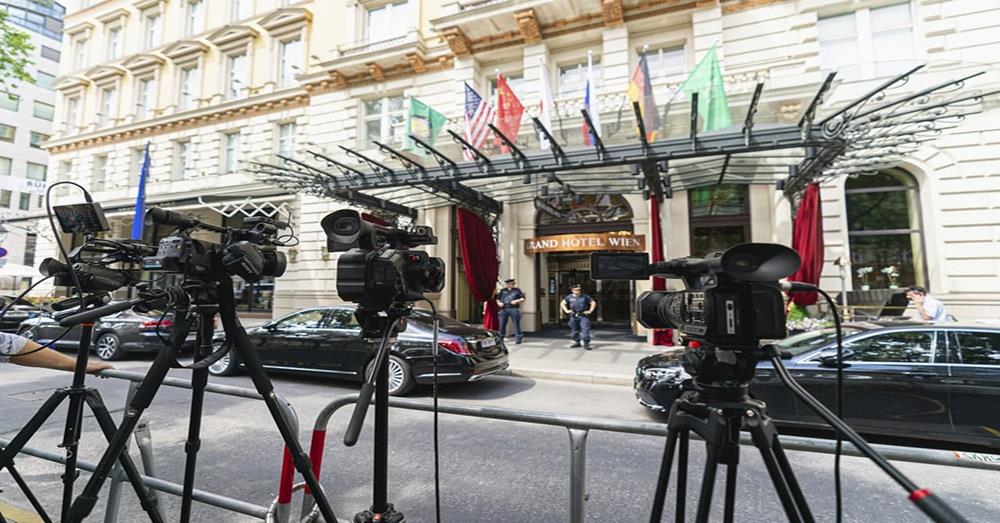TEHRAN, Oct 17 (Times of Israel) — Iran is to resume nuclear negotiations with world powers on October 21 that were suspended in June, an Iranian lawmaker said Sunday after a meeting with Foreign Minister Hossein Amir-Abdollahian.
The lawmaker was referring to four UN Security Council permanent members — Britain, China, France, and Russia — along with Germany.
June 20, 2021. (Florian Schroetter/AP)
TEHRAN — Iran is to resume nuclear negotiations with world powers on October 21 that were suspended in June, an Iranian lawmaker said Sunday after a meeting with Foreign Minister Hossein Amir-Abdollahian.
The minister said that “talks with the 4+1 Group will restart on Thursday in Brussels,” Ahmad Alirezabeigui told the ultra-conservative news agency Fars after a closed-door session with Amir-Abdollahian.
The lawmaker was referring to four UN Security Council permanent members — Britain, China, France, and Russia — along with Germany.
Iran and these five nations opened talks in Vienna in April with the European Union (EU) also attending while the United States has taken part in indirect negotiations.
The United States, China, Russia, Germany, France, and Britain struck an accord in Vienna with Iran on its nuclear program in 2015.
But then-US president Donald Trump pulled America out of the deal in 2018 and reimposed biting sanctions.
Tehran — which insists its nuclear program is for civilian purposes only — has retreated from many of its commitments under the accord.
Trump’s successor Joe Biden has said he is ready to return to the agreement if the Islamic Republic re-adheres to its nuclear commitments.
The Vienna talks aimed at reviving the deal were suspended in June, when Iran elected ultraconservative Ebrahim Raisi as president.
However, the EU’s diplomatic chief Josep Borrell said Friday he was “ready” to meet Iranian leaders in Brussels as part of efforts to revive the faltering deal.
Another Iranian lawmaker, Behrouz Mohebbi Najmabadi, said on Twitter on Sunday that negotiations would resume “this week.”
The Biden administration has made it clear to Israel that it believes diplomacy, rather than military action, is the best way forward in dealing with Iran’s nuclear program, most recently during a meeting this month between US National Security Adviser Jake Sullivan and a visiting Israeli delegation led by National Security Council chairman Eyal Hulata.
Last month, Defense Minister Benny Gantz told Foreign Policy magazine that he was prepared to see the US negotiate a fresh nuclear deal with Iran, a rare comment from a senior government official not rejecting the multilateral accord out of hand.
While Israeli defense officials not in government have indicated a degree of tolerance for the JCPOA or a negotiated nuclear deal of any kind in the past, that sentiment has not extended to public officials, and Gantz appeared to be the most senior cabinet member to reflect it on the record.
A spokesperson for the minister later clarified that Gantz does not support an American return to the JCPOA, but rather maintains that Israel would accept some other longer, broader and stronger nuclear agreement.
Prime Minister Naftali Bennett has made it clear that he opposes a negotiated nuclear deal and has not publicly stated that its resurrection is something that Israel could live with, as Gantz did in his interview.


